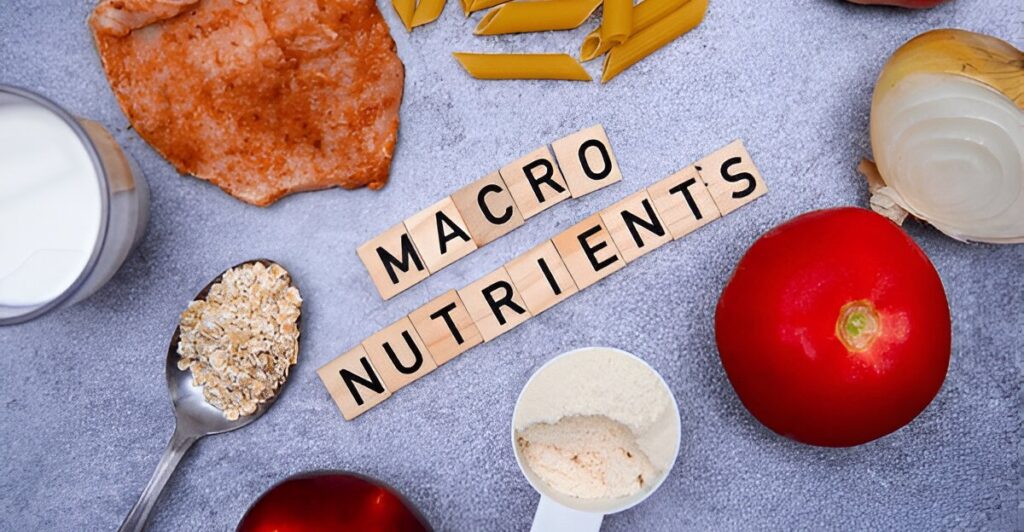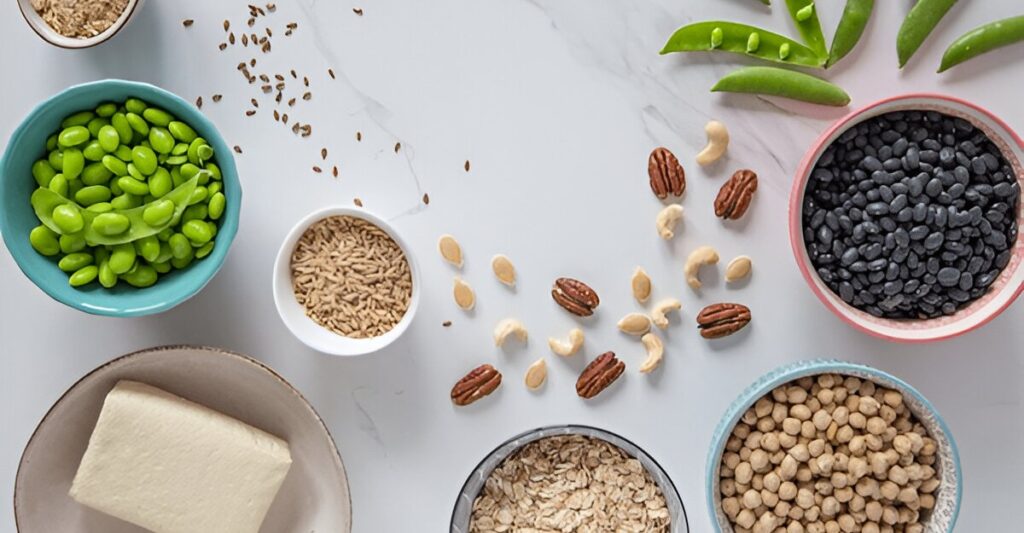Chronic inflammation is a silent driver of many health issues, from heart disease to diabetes, and your diet plays a pivotal role in either fueling or fighting it. Understanding how chronic inflammation is linked to diet can empower you to make food choices that promote long-term health and vitality. This article explores the connection between what you eat and inflammation, offering actionable strategies to reduce inflammation through diet.
What Is Chronic Inflammation?
Inflammation is your body’s natural response to injury or infection, designed to heal and protect. Acute inflammation, like swelling after a cut, is temporary and beneficial. Chronic inflammation, however, is a low-grade, persistent state that can damage tissues and contribute to serious conditions like:
- Cardiovascular disease
- Type 2 diabetes
- Autoimmune disorders (e.g., rheumatoid arthritis)
- Obesity
- Cognitive decline
Diet is one of the most significant factors influencing chronic inflammation. By understanding how chronic inflammation is linked to diet, you can choose foods that calm your body’s inflammatory response and support overall wellness.
How Diet Fuels Chronic Inflammation
Certain foods and dietary patterns can trigger or worsen chronic inflammation by promoting oxidative stress, disrupting gut health, or spiking blood sugar. Here are the primary culprits:
1. Refined Carbohydrates
Highly processed carbs like white bread, sugary cereals, and pastries cause rapid blood sugar spikes, which trigger the release of pro-inflammatory cytokines.
- Examples: White rice, cookies, soda, and refined flour products.
- Impact: Frequent consumption stresses the body, increasing inflammation over time.
2. Added Sugars
Excess sugar, especially fructose from high-fructose corn syrup, promotes inflammation by increasing insulin resistance and fat accumulation in the liver.
- Examples: Sugary drinks, candies, and processed desserts.
- Impact: Studies, like one from The American Journal of Clinical Nutrition (2018), link high sugar intake to elevated inflammatory markers like C-reactive protein (CRP).
3. Trans Fats and Processed Oils
Trans fats and certain vegetable oils (e.g., soybean, corn oil) high in omega-6 fatty acids can tip the body’s omega-6 to omega-3 balance, fueling inflammation.
- Examples: Margarine, fried foods, and many packaged snacks.
- Impact: These fats disrupt cell membranes and promote pro-inflammatory pathways.
4. Processed Meats
Processed meats like bacon, sausages, and deli meats contain preservatives, sodium, and advanced glycation end-products (AGEs) that trigger inflammation.
- Examples: Hot dogs, pepperoni, and cured meats.
- Impact: A 2020 study in Nutrients linked processed meat consumption to higher inflammatory markers.
5. Excessive Alcohol
Heavy or frequent alcohol consumption can damage the gut lining, disrupt the microbiome, and increase systemic inflammation.
- Impact: Chronic alcohol use is associated with elevated inflammatory cytokines, per research in Alcohol Research (2019).
How Diet Fights Chronic Inflammation
On the flip side, certain foods and eating patterns can reduce chronic inflammation by providing antioxidants, healthy fats, and gut-supporting nutrients. Incorporating these into your diet is key to understanding how chronic inflammation is linked to diet and how to combat it.
1. Antioxidant-Rich Fruits and Vegetables
Colorful produce like berries, leafy greens, and cruciferous vegetables (broccoli, cauliflower) are packed with antioxidants that neutralize free radicals and reduce inflammation.
- Best Choices: Blueberries, spinach, kale, and beets.
- Why It Works: A 2017 study in The Journal of Nutrition found that higher fruit and vegetable intake lowered CRP levels.
2. Omega-3 Fatty Acids
Omega-3s, found in fatty fish and certain plant foods, have potent anti-inflammatory effects by balancing omega-6 fats.
- Best Sources: Salmon, mackerel, chia seeds, flaxseeds, and walnuts.
- Why It Works: Research in Circulation (2018) showed omega-3 supplementation reduced inflammatory markers in high-risk individuals.
3. Whole Grains and Fiber
Fiber-rich whole grains like quinoa, brown rice, and oats support gut health and stabilize blood sugar, reducing inflammation.
- Best Choices: Buckwheat, barley, and whole-grain bread.
- Why It Works: Fiber feeds beneficial gut bacteria, which produce anti-inflammatory compounds, per a 2021 study in Gut Microbes.
4. Healthy Fats
Monounsaturated and polyunsaturated fats, unlike trans fats, have anti-inflammatory properties.
- Best Sources: Olive oil, avocados, and almonds.
- Why It Works: Olive oil’s polyphenols reduce inflammation, as shown in a 2019 study in Nutrients.
5. Spices and Herbs
Certain spices, like turmeric and ginger, contain bioactive compounds that combat inflammation.
- Best Choices: Turmeric (with black pepper for absorption), ginger, and garlic.
- Why It Works: Curcumin in turmeric significantly lowers inflammatory markers, per a 2020 meta-analysis in Phytotherapy Research.
The Role of Dietary Patterns
Beyond individual foods, overall dietary patterns play a massive role in how chronic inflammation is linked to diet. Anti-inflammatory diets emphasize whole, nutrient-dense foods while minimizing processed ones. Two evidence-backed approaches include:
- Mediterranean Diet: Rich in vegetables, fruits, whole grains, olive oil, and fish, this diet is linked to lower inflammation markers, per a 2022 study in The American Journal of Clinical Nutrition.
- Plant-Based Diet: Focusing on plant foods reduces inflammation by providing fiber, antioxidants, and phytonutrients.
In contrast, the Western diet—high in sugar, processed foods, and unhealthy fats—promotes inflammation and is associated with chronic diseases.
Sample Anti-Inflammatory Meal Plan
Here’s a one-day meal plan to fight inflammation:
- Breakfast: Greek yogurt with mixed berries, chia seeds, and a drizzle of honey.
- Snack: A handful of walnuts and an apple.
- Lunch: Grilled salmon with quinoa, steamed broccoli, and an olive oil-lemon dressing.
- Snack: Sliced cucumber with hummus and a sprinkle of turmeric.
- Dinner: Stir-fried chicken with garlic, ginger, spinach, and brown rice.
Tip: Stay hydrated with water or green tea, which contains anti-inflammatory catechins.
Lifestyle Factors to Support an Anti-Inflammatory Diet
Diet is critical, but other habits enhance its effects:
- Exercise Regularly: Moderate activities like walking or yoga reduce inflammatory markers, per a 2019 study in Brain, Behavior, and Immunity.
- Manage Stress: Chronic stress elevates cortisol, which fuels inflammation. Try meditation or deep breathing.
- Prioritize Sleep: Poor sleep increases inflammation. Aim for 7-9 hours nightly.
- Limit Toxins: Reduce exposure to environmental toxins (e.g., smoking, pollution), which can exacerbate inflammation.
Common Myths About Inflammation and Diet
Let’s debunk some misconceptions:
- Myth 1: All Fats Are Inflammatory
Healthy fats like those in avocados and fish are anti-inflammatory, while trans fats and excessive omega-6 oils are the problem. - Myth 2: You Must Eliminate Entire Food Groups
A balanced diet with whole foods works for most people. Extreme restrictions aren’t necessary unless medically advised. - Myth 3: Supplements Can Replace Diet
While supplements like omega-3s or turmeric can help, whole foods provide a synergy of nutrients that’s hard to replicate.
Practical Tips to Reduce Inflammation Through Diet
Ready to apply what you’ve learned about how chronic inflammation is linked to diet? Try these steps:
- Shop Smart: Fill your cart with colorful produce, whole grains, and lean proteins. Avoid processed snacks and sugary drinks.
- Cook at Home: Preparing meals lets you control ingredients and avoid inflammatory additives.
- Read Labels: Check for added sugars, trans fats, or artificial ingredients in packaged foods.
- Eat Seasonally: Fresh, local produce is often richer in antioxidants and flavor.
- Work with a Professional: A dietitian can tailor an anti-inflammatory plan to your needs, especially if you have a chronic condition.
Conclusion
Understanding how chronic inflammation is linked to diet is a powerful step toward better health. By avoiding inflammatory foods like sugar, trans fats, and processed meats and embracing anti-inflammatory choices like berries, fatty fish, and turmeric, you can calm your body’s inflammatory response and reduce the risk of chronic diseases.
Start small—swap one processed snack for a handful of nuts or add a serving of leafy greens to your plate. With consistent, mindful eating and supportive lifestyle habits, you’ll pave the way for a healthier, inflammation-free future.
Call to Action: Ready to fight inflammation? Try one anti-inflammatory recipe this week and share your results in the comments!


